Cancer is unfortunately now the leading cause of death among firefighters nationwide.
Although this subject is certainly crucial year-round, January is Firefighter Cancer Awareness Month, a chance to highlight the potentially life-saving protocols for cancer prevention, while supporting our fire service family members now living with a cancer diagnosis.
Beyond personal risk factors like age and family history, firefighters are often exposed to various hazardous substances on the fireground that are known or suspected to cause cancer. These chemicals are breathed in, absorbed through the skin or eyes, or ingested. If protective turnout gear isn’t adequately cleaned or stored after a call, that can contaminate the fire station, your car, your home and more, and put yourself and others at risk.
At MnFIRE, we’re working to promote a safety culture that emphasizes healthier lifestyles, regular cancer screenings, and reduced exposure to potential hazards.
Little by little, changes to your routine can make a difference. For instance, during and after a fire call, experts recommend protecting yourself by:
- Wearing SCBA
- Conducting gross decontamination on the fireground
- Using gloves to doff PPE/equipment and minimize cross-contamination
- Bagging dirty equipment
- Using wet wipes to clean off soot and other contaminants
- Washing clothes and gear
- Showering within the hour after a call
We’re here to back you up every step of the way. Gone are the days of being macho and showing off dirty gear to prove you did the toughest job. The fire culture continues to shift to prioritize diligently using SCBA and PPE, keeping records of exposures, being honest about how you’re feeling and scheduling regular physicals with your doctor.
Firefighters can learn more about the activities that put them at higher risk for developing cancer, proper PPE strategies for mitigating cancer risks, and what types of screenings can be done to catch cancer early by scheduling a cancer deep-dive training through MnFIRE. These trainings are presented by fellow firefighters and medical subject matter experts.
In the unfortunate event that you or someone you know is diagnosed with cancer, you’re also not alone, emotionally or financially.
All Minnesota firefighters have been automatically enrolled in our Critical Illness Program through the Hometown Heroes Assistance Program which covers diagnoses of cancer and other critical illnesses, and provides a lump-sum cash payment of up to $20,000 to assist with expenses like medical bills and travel costs to and from doctor’s appointments. For more information or to file a claim, call 888-784-6634 or visit securian.com/mnfire-insurance.
Confidential help and mental health support is available over the phone or online, anytime for any firefighter and their family through the MnFIRE Assistance Program. The Firefighter Cancer Support Network is also available to help Minnesota firefighters and their families following a cancer diagnosis with rapid post-diagnosis resources followed by one-on-one support from fellow firefighters through the diagnosis, treatment and recovery process.
The choices you make as a firefighter will affect you and your family in the future. When we lose a firefighter to occupational cancer or any other firefighter-related disease or illness, it affects our families and our communities deeply. So, let’s do what we can to make a difference today. Minimize daily exposures to carcinogens, mitigate risk factors and fortify your defenses against occupational cancer.

